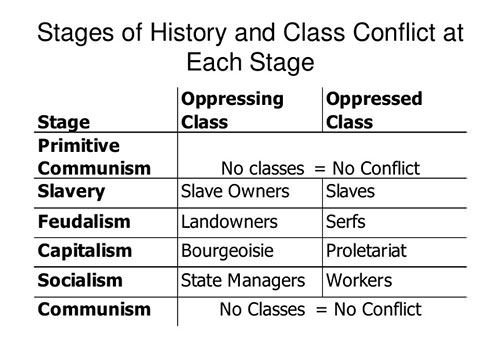- Home
- Prelims
- Mains
- Current Affairs
- Study Materials
- Test Series
 EDITORIALS & ARTICLES
EDITORIALS & ARTICLES
What is historical materialism? Examine its relevance in understanding contemporary societies. (UPSC CSE Mains 2023 - Sociology, Paper 1)
Marx shows how materialism is more important than ideas. The most fundamental aspect of human existence is the absolute necessity to produce the man"s of subsistence. Marx states that the production of the means of subsistence is prior to all other human activities: society can function only when it can organize the means of production of its basic needs. Therefore, Marx"s philosophy of human history has become his historical materialism".
Marx regards man as both the producer and the product of society. Man makes society and himself by his own actions. History is therefore the process of man''s self creation. Yet man is also a product of society. He is shaped and moulded by the social relationships and systems of thought which he creates. An understanding of society therefore involves an historical perspective which examines the process whereby man both produces and is produced by social reality. A society forms a totality of which the various parts are interconnected and influence each other. Thus economic political, legal and religious institutions can only be understood in terms of their mutual effect. Economic factors, however, exert the primary influence and largely shape other aspects of society. The mode of production of economic goods determine the relationships between and among men. Thus society is patterned according to economic organization. The history of society is a process of tension and conflict. Social change progresses out of contradictions built into society which become source of tension and ultimately the source of open conflict and radical change.
‘Dialectic'', Hegel says, means dual existence. To every order or reality, there is opposite or contradictory phenomenon e.g. if there are rich, there must be poor, landowners must face landless, the rulers have ruled'', high status is compared with low status. Thus basic sharp contrasting features of social reality give rise to inherent contradictions, i.e. Master - servants, powerful - powerless, happy - angry. For Marx, everything has opposite thing to match. Some people have, while some others do not have, thus there is conflict between haves and have nots. Marx turned idealism to materialism and made successful use of the concept dialect in what came to be called "dialectical materialism" or "historical materialism”. He analysed history by using this method.
This adaptation of Hegelian idealism to historical materialism coupled with his acceptance of British economic theory led Marx to believe that the motivating factor in human existence was not ideas about religion and society but a materialistic realism having to do with survival. Every man tries to survive and for this he has to produce. This survival or the necessity to produce the means of subsistence was basic to human life and human action in community and society. It was a basic fact underlying all human interactions.
“The first historical act” wrote Marx, "is the production of material life itself”. This is indeed a historical act, a fundamental condition of all history". Having accepted the evolutionary perspective on human development popular in the 19th century European thought, Marx thought of society as an arena within which the struggle and strife between groups of people, competing forces for survival and improved livelihood, generated social change. Marx thought of struggle and contention (argument), strife and competition as the mechanism for social advancement in community.
According to Marx’s theory of historical materialism, societies pass through six stages — primitive communism, slave society, feudalism, capitalism, socialism and finally global, stateless communism.

Relevance to Contemporary Societies
- Capitalist Structures Analysis: Unveils class conflicts and socioeconomic disparities within modern economic systems.
- Class Dynamics: Elucidates modern class relations and ongoing struggles for workers’ rights.
- Social Change Triggers: Highlights how economic conditions influence social and political realities.
- Technological Advancements: Demonstrates how technology, as part of production forces, shapes modern societies.
- Globalization and International Relations: Shows how economic interests drive international dynamics and globalization effects.
- Environmental Concerns: Highlights exploitation of natural resources, contributing to sustainable development discourse.
- Neoliberal Policies Critique: Aids in critiquing neoliberal policies and their implications on wealth distribution.
- Social Movements: Explains the emergence of social movements for economic justice triggered by material conditions.









 Latest News
Latest News General Studies
General Studies